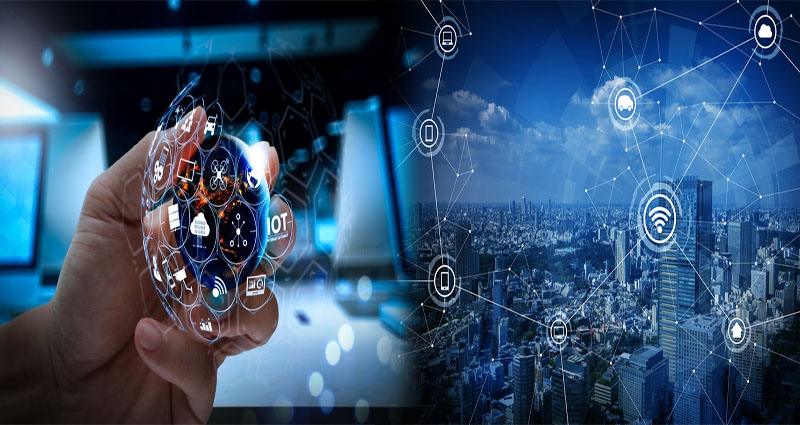Imagine a world where all of your devices are connected, seamlessly communicating with each other to make your life more efficient and convenient. This is the vision of the Internet of Things (IoT), a term used to describe the connection between devices through the internet.
The Internet of Things refers to the concept of connecting everyday objects, from household appliances to industrial machinery, to the internet. These objects, or “things,” are embedded with sensors, software, and connectivity that enable them to collect and exchange data without human intervention. This data can then be analyzed and utilized to improve various aspects of our lives, from reducing resource consumption to enhancing productivity and safety.
The impact of the Internet of Things is far-reaching and has the potential to transform many industries. Let’s take a closer look at some of its key impacts:
1. Enhanced Efficiency and Productivity
By connecting devices and enabling them to communicate with each other, the Internet of Things can greatly enhance efficiency and productivity in various fields. For instance, in manufacturing, connected machines can optimize production processes, reduce downtime, and minimize waste. In the healthcare sector, IoT devices can enable remote monitoring of patients, leading to more efficient healthcare management and timely interventions.
2. Improved Safety and Security
IoT technology can enhance safety and security in multiple ways. For example, in the transportation sector, connected vehicles can communicate with each other to avoid accidents and optimize traffic flow. In smart homes, IoT devices can detect potential hazards such as gas leaks or fire and automatically notify homeowners or emergency services. Additionally, IoT-enabled surveillance systems can improve security and help prevent crimes.
3. Resource Efficiency and Sustainability
With the Internet of Things, it is possible to optimize resource consumption and promote sustainability. IoT devices, such as smart meters, can monitor energy usage in real-time, enabling consumers to make informed decisions about energy consumption. In agriculture, IoT sensors can provide valuable data about soil moisture levels, temperature, and nutrient content, allowing for more precise irrigation and fertilization, thereby saving water and minimizing environmental impact.
4. Enhanced Customer Experience
The Internet of Things has the potential to revolutionize customer experience by providing personalized and seamless interactions. For instance, retail businesses can use IoT technology to track customer preferences and behaviors, enabling personalized marketing campaigns and targeted offers. Connected devices in smart homes can learn user preferences and adjust settings accordingly, providing a more convenient and comfortable living environment.
The Internet of Things is a technological revolution that is bringing about significant changes in our lives and industries. By connecting devices and enabling them to communicate and share data, the IoT has the potential to enhance efficiency, improve safety and security, promote resource sustainability, and revolutionize customer experience. As the IoT continues to evolve, its impact will only become more profound, shaping the way we live, work, and interact with our environment.









